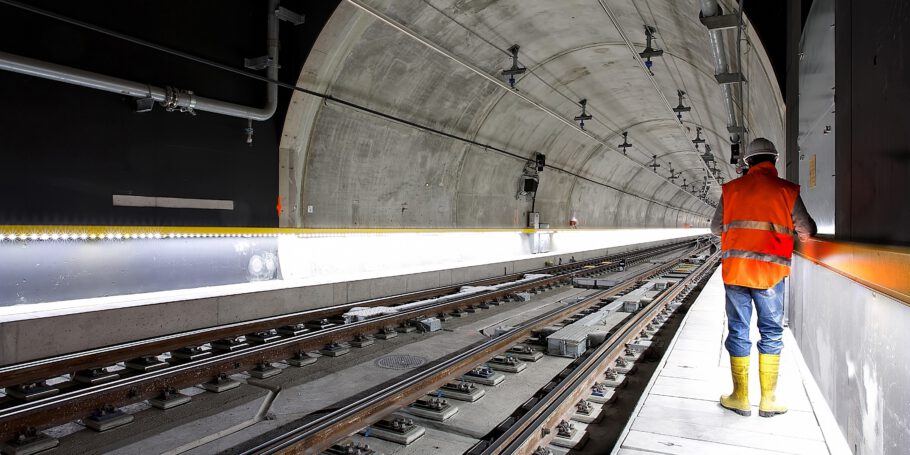COVID-19 and the construction industry – force majeure in FIDIC contracts
Areas of interests / 27 April 2020

COVID-19 is undoubtedly adversely affecting the construction industry. Investors and contractors are wondering if the pandemic may constitute a force majeure event and how to protect against the adverse effects of the existing situation. In the article below, we will take a closer look at how FIDIC Conditions of Contract govern the issue of force majeure.
Force majeure as defined by FIDIC
Sub-Clause 19.1 of the FIDIC Yellow Book and Red Book mentions the grounds for classifying specific circumstances to be force majeure. It specifies that force majeure should be understood as an exceptional event or circumstance:
“(a) which is beyond a Party’s control,
(b) which such Party could not reasonably have provided against before entering into the Contract,
(c) which, having arisen, such Party could not reasonably have avoided or overcome, and
(d) which is not substantially attributable to the other Party.”
Several significant conclusions can be drawn on the basis of the foregoing for entities implementing contracts based on FIDIC. First of all, it should be pointed out that force majeure cannot be invoked if the event causing it occurred prior to the contract conclusion and the party invoking such circumstance could have provided against it. This is especially important during the global SARS-CoV-2 virus pandemic. It should be noted that many companies will be submitting bids and concluding contracts despite the pandemic. However, can it be considered that they will be able to invoke force majeure if the pandemic lasts longer than experts suppose? In the light of the provisions of the FIDIC Conditions of Contract referred to above, an answer to this question seems to be negative. Unless specific provisions regarding release from liability, suspending or termination condition or other safeguards are introduced in the contract, contracting authorities will be able to require its implementation despite the virus pandemic. What will be important is that at the time of concluding such contract, the parties were aware of the pandemic. However, this will not apply if the virus-related restrictions result directly from a change in law. In this case, contractors will be able to file respective claims under Sub-Clause 13.7 FIDIC.
An event that a party could have avoided or overcome cannot be considered as force majeure. This condition can be applied, among other things, to the introduction of regulations on remote work, owing to which at least some adverse effects of the pandemic can be avoided. It is obvious that work performed directly at the construction site cannot be made remotely. But what about the design stage, which is part of the obligations of a contractor implementing the contract on the basis of Yellow FIDIC? It seems that in this case it cannot be clearly determined whether the infrastructure design could be developed as part of remote work or not. Therefore, each situation will require a separate, detailed analysis. Also an investor must each time verify whether performance of specific contractual obligations, e.g. handing over a construction site, take-overs of works to be covered, acceptance of subcontracts or final take-overs, could take place despite the SARS-CoV-2 pandemic.
Pandemic as Force Majeure
In the light of FIDIC Conditions, however, another issue is worrying. Further part of the Sub-Clause referred to above also includes the following list of situation, which may constitute a Force Majeure:
“(i) war, hostilities (whether war be declared or not), invasion, act of foreign enemies,
(ii) rebellion, terrorism, revolution, insurrection, military or usurped power, or civil war,
(iii) riot, commotion, disorder, strike or lockout by persons other than the Contractor’s Personnel and other employees of the Contractor and Subcontractors,
(iv) munitions of war, explosive materials, ionising radiation or contamination by radio-activity, except as may be attributable to the Contractor’s use of such munitions, explosives, radiation or radio-activity, and
(v) natural catastrophes such as earthquake, hurricane, typhoon or volcanic activity.”
Detailed analysis of these examples leads to the conclusion that the SARS-CoV-2 pandemic situation is not a force majeure event. None of the listed circumstances refers directly to the occurrence of an epidemic, pandemic or change in the legal status associated with the occurrence thereof. However, in order to determine whether an epidemic or pandemic can be considered a force majeure under these conditions at all, one should look at the above mentioned list while taking into account a certain reservation. Namely, this list is only exemplary, which does not mean that another event or circumstance cannot be considered a force majeure, provided, of course, that they meet the definition of “Force Majeure” provided in Sub-Clause 19.1. Therefore, in the light of the FIDIC Conditions discussed, it seems reasonable to consider that the SARS-CoV-2 pandemic may constitute a force majeure, provided that the party invoking it demonstrated that it could not have reasonably secured itself against it before the conclusion of the contract and which it could not have avoided or overcome. The demonstration of the other two circumstances, i.e. the parties’ lack of influence on the SARS-CoV-2 virus, seems obvious.
Important time limits
In order to invoke force majeure, the parties to the contract should remember that Sub-Clause 19.2 FIDIC provides that circumstances or events constituting force majeure should be notified to the other party to the contract within 14 days of their occurrence. However, each case should be reviewed individually. What should be in particular verified is whether a given situation is not a manifestation of circumstances other than the occurrence of force majeure. This could then lead to the determination that the contractor has the time limit specified in Sub-Clause 20.1 for the submission thereof, namely 28 days from the date of the event giving rise to the claim.
Looking for examples of dates from which force majeure or another event resulting in a claim could be considered, we may point out to, for example:
- 2 March 2020 – circumstances specified in the Act on special solutions related to preventing, counteracting and combating of COVID-19, other infectious diseases and crisis situations caused by them;
- 11 March 2020 – WHO announces a global pandemic;
- 13 March 2020 – circumstances specified in the Regulation of the Ministry of Health regarding the announcement of an epidemic crisis situation in the territory of the Republic of Poland;
- 20 March 2020 – circumstances specified in the Regulation of the Ministry of Health regarding the announcement of an epidemic crisis situation in the territory of the Republic of Poland.
Contractors and investors should therefore remember that force majeure does not automatically suspend contract performance. A party invoking force majeure should specify which obligations it is not able to perform or performance of which may be hindered due to force majeure. It cannot be ruled out that these will be all contractual obligations. After specifying such obligations, the party will be exempted from their performance for the duration of force majeure. The second paragraph of Sub-Clause 19.2 FIDIC states explicitly: “The Party shall, having given notice, be excused performance of such obligations for so long as such Force Majeure prevents it from performing them.”
In the context of the foregoing, reference should be made to the regulation provided for in Sub-Clause 19.3 FIDIC. It states that the parties are obliged to make all “reasonable efforts” to minimize any delay resulting from force majeure in the performance of the contract. Therefore, invoking force majeure is not a sufficient argument for suspending works. Despite its occurrence, the parties should perform the contract to the extent that the existence of force majeure does not prevent it. Invoking force majeure itself is not enough. The party invoking it must be able to demonstrate that the existence of force majeure had an impact on the performance of its obligation. The sole announcement of the epidemic is therefore not enough in this case.
Force majeure does not suspend payment obligations
Force majeure may not affect the financial obligations of the parties to the contract implemented on the basis of FIDIC. The last sentence of Sub-Clause 19.2 FIDIC provides that force majeure will not apply to the obligations of either party to make payments to the other. Thus, an investor cannot invoke the occurrence of force majeure in relation to the delay in payment of remuneration and the contractor in payment of e.g. contractual penalties. Force majeure will not constitute grounds for suspending the running of payment deadlines specified in the contract.
FIDIC vs national legislation in times of crisis
These considerations are based only on provisions of the FIDIC Conditions of Contract, they do not take into account planned changes to generally applicable laws. Parties to the contract should also remember strict limits of time resulting from civil law, which cannot be suspended on the grounds of force majeure within the meaning of the FIDIC Conditions of Contract. As an example of such a time limit, we may consider, inter alia, an objection to subcontracting, which must be submitted within 30 days in a written form to be valid.
The article has been written by Marta Lipińska, trainee attorney-at-law at GWW.
Author
Marta Lipińska
radca prawny
Zanim zostałam prawnikiem skończyłam Politechnikę Warszawską i zostałam inżynierem „od miast”. Zaczęłam pracę u jednego z największych zamawiających w Polsce i wtedy pojawiła się m...
Powiązane wpisy

Tax credit for donors – zero VAT rate for entities providing personal protective equipment
Tax credit for donors – zero VAT rate for entities providing personal protective equipmentAlcohol for disinfection as the tax-deductible cost
Alcohol for disinfection as the tax-deductible costTax residency during lockdown
Tax residency during lockdown
Relief for residential purposes in Poland – how does it work from January 1, 2019?
Relief for residential purposes in Poland – how does it work from January 1, 2019?Obawiasz się,
że ominą Cię
najważniejsze zmiany
w prawie?



